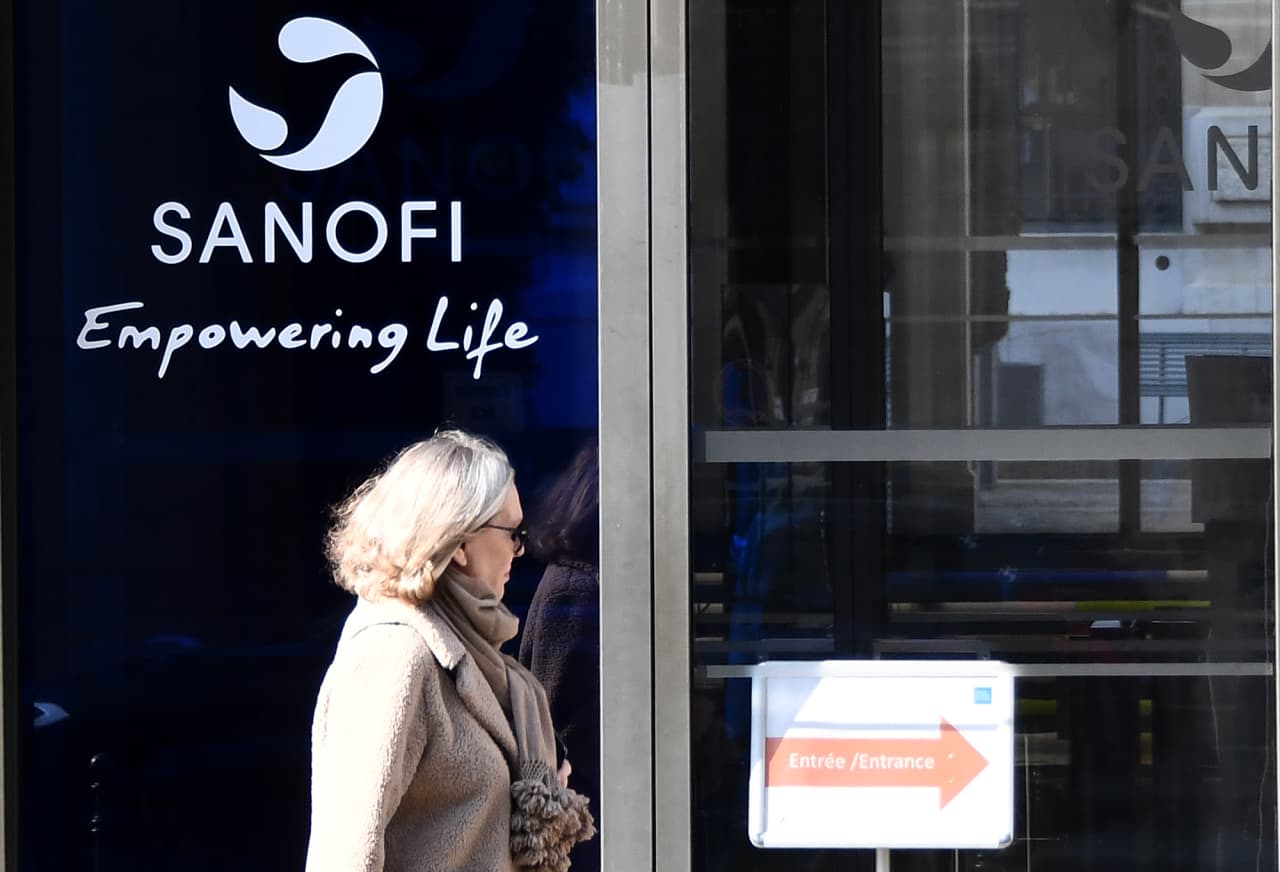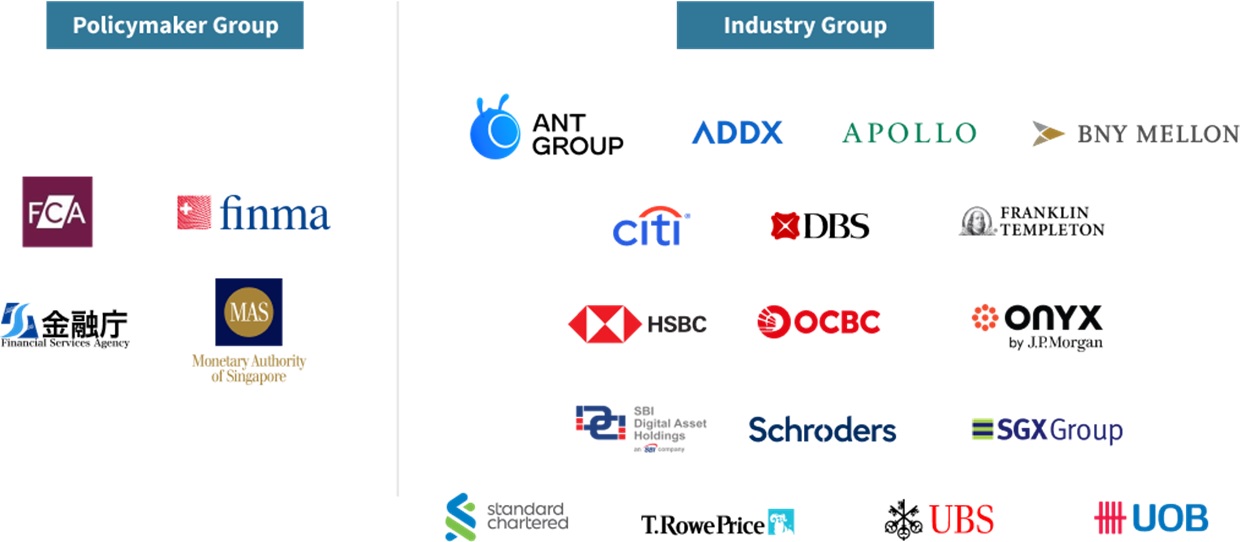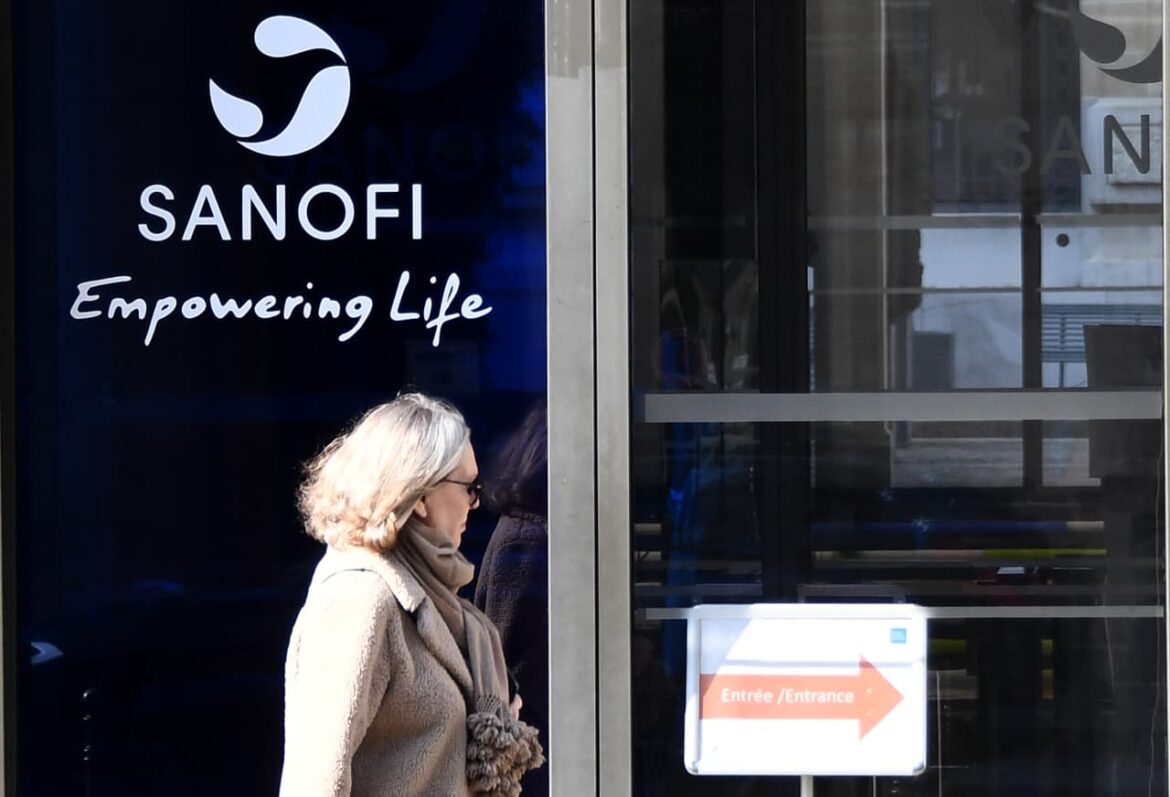
A Type 2 diabetes medication called lixisenatide appeared to slow the progression of Parkinson’s disease symptoms in a small, mid-stage trial funded by the French Ministry of Health.
Source link
trial
SEC begins multi-billion dollar fraud trial against Terraform Labs, Do Kwon

In a dramatic opening to a much-anticipated trial, the US SEC cast Terraform Labs and its co-founder, Do Kwon, as central figures in a vast financial deception that left investors nearly destitute following its collapse, Reuters reported on March 26.
The trial, unfolding in the US District Court for the Southern District of New York, marks a significant moment in closing the chapter on one of the biggest black swan events in the crypto industry.
The SEC accused Terraform Labs and Kwon of conducting a multi-billion dollar crypto asset securities fraud, leading to the lawsuit filed in February 2023.
House of cards
The SEC’s legal team, led by attorney Devon Staren, did not mince words, describing Terra as a “house of cards” that inevitably toppled, erasing vast amounts of investor capital.
Central to the SEC’s allegations is the claim that Terraform Labs and Kwon deliberately misled investors regarding the stability of Terra USD (USTC).
The algorithmic stablecoin dramatically failed to maintain its peg to the US dollar, resulting in billions of dollars being wiped from the network within hours. This failure is cited as a catalyst for broader turbulence in the crypto market during 2022, leading to a cascade of bankruptcies among various crypto enterprises.
Originally slated to begin in January, the legal saga was postponed to March, partially due to expectations that Kwon would attend in person to mount a defense. However, Kwon remains in Montenegro after the country overturned a previous ruling to extradite him to the US.
In a December 2023 development, Judge Jed Rakoff issued a summary judgment favoring the SEC’s stance on Terra’s dealings with unregistered securities while siding with Kwon and the platform on charges related to the offer and sale of security-based swaps.
Terra’s side of the story
In a poignant message released just before the trial, Terraform Labs broke its recent silence, expressing the gravity of the situation.
CEO Chris Amani acknowledged the intense preparation that preceded the trial and the company’s strategic decision to limit public communication during the proceedings.
Amani wrote:
“The next couple of weeks will determine the future of TFL. There have been a lot of allegations and this is our chance to finally tell our side of the story.”
The statement urged followers and observers to keep an open mind and assess the facts as they unfold in court.
Gratitude was a recurring theme in the message, with heartfelt thanks directed toward the Terra community, which has stood by the company through tumultuous times. The acknowledgment extended to developers who continued to build on the Terra platform and partners who maintained their collaborations, illustrating a steadfast support network.
Mentioned in this article
Latest Alpha Market Report

Do Kwon’s lawyers told a US court on Feb. 26 that the Terraform Labs co-founder will be unable to attend the initial hearings of the SEC trial.
The lawyers did not request an adjournment and said the trial could begin as scheduled on March 25 without Kwon’s presence, according to court filings.
Unforeseen complications
Kwon’s lawyer, David Patton, said that Kwon, currently in Montenegro, may not be extradited by the end of March due to unforeseen complications in the legal process. He added that these have derailed earlier expectations of a quick extradition.
Patton said the delay is primarily caused by “unanticipated mistakes” made by the Montenegrin court in charge of Kwon’s extradition case.
The filing includes a declaration from Kwon’s Montenegrin defense attorney, Goran Rodic, which highlights several issues with the high court’s extradition ruling.
Rodic criticized the Feb. 21 decision, claiming it was based on incorrect information regarding the timing of extradition requests by the US and South Korea. He also raised concerns over several procedural errors during the legal process.
Legal saga continues
Kwon was arrested by Montenegro in March 2023 for using falsified travel documents and has remained there since. The arrest came amid ongoing investigations following the collapse of Terra in May 2022, with Kwon’s whereabouts previously unknown.
Montenegro found him guilty of possessing forged documents and sentenced him to four months in prison. His extradition case has been ongoing in tandem.
The legal battle over his extradition involves both South Korea and the US. The two countries filed extradition requests with Montenegro following Kwon’s arrest.
The SEC’s lawsuit against Kwon and Terraform, filed in February 2023, and subsequent criminal charges by the US Attorney’s Office have placed Kwon at the center of allegations involving billions in crypto asset securities fraud.
In December 2023, Judge Jed Rakoff granted summary judgment in favor of the SEC, with the trial scheduled for late March 25.
Meanwhile, South Korea wants him extradited to face trial in his home country. Some of his former associates, including Terra co-founder Daniel Shin, have already faced trial over fraud charges.
Do Kwon seeks SEC trial delay while awaiting extradition from Montenegro

According to a court filing, embattled Terraform Labs co-founder Do Kwon wants to delay his Securities and Exchange Commission (SEC) trial to mid-March, pending his extradition to the country from Montenegro.
In a Jan. 11 letter to Judge Rakoff, as shared by Inner City Press, Kwon’s legal team revealed that their client wants to appear at the court. Still, his delayed extradition from Montenegro is impeding this availability.
So, he is requesting a “short adjournment of the trial date [until mid-March] to allow for his attendance.”
“We understand the Court cannot put the trial on hold indefinitely, but an adjournment until mid-March would provide a realistic possibility for Mr. Kwon to attend,” the letter added.
However, if his request is denied, Kwon wants the court to instruct the jury that his absence and unavailability to testify should not be “unduly prejudicial to him.”
Kwon has been held up in Montenegro since last March after he was arrested for trying to travel with forged documents. He served a four-month prison sentence in the European country, but his stay was extended by two months due to the legal issues surrounding his possible extradition to the U.S. or South Korea.
Last December, the Montenegro Court of Appeal overturned a lower court’s approval of his extradition because the order breached specific legal provisions.
So, uncertainty looms over where Kwon would be sent. The disgraced crypto tycoon previously expressed preference to be extradited to South Korea. However, Montenegro’s Minister of Justice reportedly leans towards extraditing him to the U.S.
The SEC charged Kwon with eight criminal charges, including securities law violation, wire fraud, and allegations of defrauding the customers of his failed Terra algorithmic TerraUSD (USTC, previously UST) stablecoin. He faces similar charges in South Korea, where his former partner, Daniel Shin, is currently on trial.
NY seeks $370 million in penalties in Trump’s civil fraud trial. His response: ‘They should pay me’
NEW YORK (AP) — New York state lawyers increased their request for penalties to over $370 million Friday in Donald Trump’s civil business fraud trial. He retorted, “They should pay me.”
The exchange came as lawyers for both sides filed papers highlighting their takeaways from the trial in court filings ahead of closing arguments, set for next Thursday. Trump is expected to attend, though plans could change.
It will be the final chance for state and defense lawyers to make their cases. The civil lawsuit, which accuses the leading Republican presidential hopeful of deceiving banks and insurers by vastly inflating his net worth, is consequential for him even while he fights four criminal cases in various courts.
The New York civil case could end up barring him from doing business in the state where he built his real estate empire. On top of that, state Attorney General Letitia James is seeking the $370 million penalty, plus interest — up from a pretrial figure of $250 million, nudged to over $300 million during the proceeding.
The state says the new sum reflects windfalls from wrongdoing, chiefly $199 million in profits from property sales and $169 million in savings on interest rates, as calculated by an investment banking expert hired by James’ office.
Trump bristled at the proposed penalty, calling it “a disgrace” at a campaign stop in Sioux Center, Iowa.
“There was no victim. There was no default. There was no damages. No nothing,” he said. In an all-caps post hours earlier on his Truth Social platform, he complained that the attorney general was seeking $370 million and instead “should pay me,” asserting that businesses are fleeing New York.
(According to the state Labor Department, the number of private sector jobs in New York increased 1% in the year that ended this past November, compared to 1.6% nationally.)
James’ office argued in a filing Friday that Trump, his company and executives clearly intended to defraud people.
“The myriad deceptive schemes they employed to inflate asset values and conceal facts were so outrageous that they belie innocent explanation,” state lawyer Kevin Wallace wrote.
The state alleges Trump and his company ginned up exorbitant values for golf courses, hotels, and more, including Trump’s former home in his namesake tower in New York and his current home at the Mar-a-Lago club in Palm Beach, Florida. The numbers were listed on personal financial statements that netted him attractive rates on loans and insurance, leaving him money to invest in other projects and even his 2016 presidential campaign, James’ office says.
The defendants, including Trump’s sons Donald Jr. and Eric, deny any wrongdoing. The former president has painted the case as a political maneuver by James, Judge Arthur Engoron and other Democrats, saying they’re abusing the legal system to try to cut off his chances of winning back the White House this year.
He asserts that his financial statements actually came in billions of dollars low, and that any overestimations — such as valuing his Trump Tower penthouse at nearly three times its actual size — were mere mistakes and made no difference in the overall picture of his fortune.
He also says the documents are essentially legally bulletproof because they said the numbers weren’t audited, among other caveats. Recipients understood them as simply starting points for their own analyses, the defense says.
None of Trump’s lenders testified that they wouldn’t have made the loans or would have charged more interest if his financial statements had shown different numbers, and 10-plus weeks of testimony produced “no factual evidence from any witness that the gains were ill-gotten,” attorneys Michael Madaio and Christopher Kise wrote in a filing Friday. Nor, they said, was there proof that insurers were ripped off.
Separately, defense lawyers argued that claims against Executive Vice Presidents Eric Trump and Donald Trump Jr. should be dismissed because they never had “anything more than a peripheral knowledge or involvement in the creation, preparation, or use of” their father’s financial statements.
The sons relied on the work of other Trump Organization executives and an outside accounting firm that prepared those documents, attorneys Clifford Robert and Michael Farina said, echoing the scions’ own testimony.
Their father also took the stand, disputing the allegations, decrying the case as political and criticizing the judge and the attorney general. James’ office argued in its filing Friday that Trump was “not a credible witness.”
“He was evasive, gave irrelevant speeches and was incapable of answering questions in a direct and credible manner,” Wallace wrote.
The verdict is up to the judge because James brought the case under a state law that doesn’t allow for a jury. Engoron has said he hopes to decide by the end of this month.
He will weigh claims of conspiracy, insurance fraud and falsifying business records. But he ruled before trial on the lawsuit’s top claim, finding that Trump and other defendants engaged in fraud for years. With that ruling, the judge ordered that a receiver take control of some of the ex-president’s properties, but an appeals court has frozen that order for now.
During the trial, Engoron fined Trump a total of $15,000 after finding that he violated a gag order. The order, imposed after Trump maligned a law clerk, barred all trial participants from commenting publicly on the judge’s staff.
Trump’s lawyers are appealing the gag order.
___
Contributing were Associated Press writers Michael R. Sisak and Jill Colvin in New York and Hannah Fingerhut in Sioux Center, Iowa.
A pilot program for a live Singapore dollar-based central bank digital currency (CBDC) was unveiled by Singapore’s central bank, which aims to have the CBDC used by local banks for settlements.
“I am pleased to announce that MAS will pilot the ‘live’ issuance of wholesale CBDCs to instantaneously settle payments across commercial banks,” MAS managing director Ravi Menon said on Nov. 16 at the Singapore Fintech Festival.
The MAS had previously only simulated the issuance of a CBDC in test environments. Menon said the central bank would soon partner with Singaporean banks to test using a CBDC as a settlement asset for domestic payments.
As part of the test program, Menon explained that banks will issue tokenized liabilities that represent claims on their balance sheets. Retail customers could use those tokenized liabilities to transact with merchants, which would be settled via an automatic transfer of a wholesale CBDC.
“Clearing and settlement thus occur in a single step, on the same infrastructure, unlike the current system in which clearing and settlement take place on different systems, and settlement occurs with a lag,” he said.
A wholesale CBDC is primarily used by central and commercial banks and other large financial institutions to settle payments.
Related: Paxos to issue USD stablecoin in Singapore, wins initial approval
On Nov. 15, the MAS introduced five additional industry pilots to its financial infrastructure test program — dubbed Project Guardian — to assess various use cases around asset tokenization.
The new partnerships saw the project expand from 12 to 17 members, now including major financial institutions such as BNY Mellon, HSBC and Citigroup.

On May 1, the MAS and the New York Federal Reserve published the results of a six-year-long trial program of a CBDC’s utility in cross-border payment, dubbed Project Ubin. The results showed that CBDCs were potentially useful in making cross-border payments more efficient and cost-effective.
Magazine: Slumdog billionaire — Incredible rags-to-riches tale of Polygon’s Sandeep Nailwal

Former FTX CEO Sam Bankman-Fried was found guilty of all seven charges by a jury in his criminal trial in New York after about four hours of deliberations.
Bankman-Fried was found guilty of two counts of wire fraud, two counts of wire fraud conspiracy, one count of securities fraud, one count of commodities fraud conspiracy and one count of money laundering conspiracy.
He will return to court for sentencing by New York District Judge Lewis Kaplan on March 28, 2024. Government prosecutors will recommend a sentence, but Judge Kaplan will have the final say.
Bankman-Fried’s crimes each carry a maximum sentence of between five and 20 years in prison with the wire fraud, wire fraud conspiracy and money laundering conspiracy carrying a maximum 20-year sentence.
In a press conference outside the court, New York Southern District U.S. Attorney Damian Williams called Bankman-Fried’s crimes “a multibillion-dollar scheme designed to make him the king of crypto” and one of the biggest financial frauds in American history.
Bankman-Fried’s attorney, Mark Cohen, said in a statement: “We respect the jury’s decision. But we are very disappointed with the result. Mr. Bankman Fried maintains his innocence and will continue to vigorously fight the charges against him.”
STATEMENT FROM THE TEAM OF SAM BANKMAN-FRIED —
“We respect the jury’s decision. But we are very disappointed with the result. Mr. Bankman Fried maintains his innocence and will continue to vigorously fight the charges against him.” pic.twitter.com/Q69w6nKB34
— Teddy Schleifer (@teddyschleifer) November 3, 2023
Other key FTX executives, including former Alameda CEO Caroline Ellison, FTX co-founder Gary Wang and former FTX engineering head Nishad Singh, have all pleaded guilty to various charges and worked with the government to testify against Bankman-Fried in the five-week trial.
Related: ‘Fuck regulators,’ said SBF behind closed doors: Report
Bankman-Fried had pleaded not guilty to all charges, and during his trial, he took the stand to maintain his innocence and mark up FTX’s November 2022 collapse as “a number of big mistakes.”
He denied any wrongdoing in FTX’s relationship with Alameda and attempted to distance himself from key decisions.
Bankman-Fried pinned the blame on Wang for creating a function that allowed Alameda to trade funds on FTX that it didn’t have and claimed he “wasn’t entirely sure what happened” with Alameda’s line of credit, which ballooned to billions in the collapsing crypto market of 2022.
In his testimony, he also blamed Ellison for not focusing on risk management and didn’t believe he defrauded FTX customers by taking over $8 billion worth of their funds; instead, he framed it as Alameda borrowing from the exchange.
Magazine: Blockchain detectives — Mt. Gox collapse saw birth of Chainalysis
Additional reporting by Ana Paula Pereira.
Terraform co-founder Shin blames protocol for collapse during trial in S. Korea

The trial of payment platform developer Terraform Labs co-founder Shin Hyun-Seong, also known as Daniel Shin, and seven others got underway in Seoul Southern District Court in South Korea on Oct. 30, according to local news reports. Shin is accused of defrauding investors. Also at issue was whether or not LUNA (LUNA) is a security.
Shin left Terraform in 2020 “for business reasons,” his lawyer told the court. Shin was the CEO of Chai, a payments technology company that partnered with Kwon to form Terraform in 2019. According to Chosun Biz, the lawyer added:
“The cause of the slump [that led to Terraform’s bankruptcy] was due to the unreasonable operation of the Anchor Protocol and external attacks carried out by Do-hyung Kwon after the breakup [between business partners Shin and Kwon]. […] It has nothing to do with the defendant.”
Anchor Protocol was the algorithm used to maintain the value of the dollar-pegged TerraUSD (UST) coin.
The defendants face multiple charges under at least four laws, including the Information Act. The prosecutor claimed, “They took advantage of the fact that investors had difficulty accessing information and had a low understanding of it.”
The prosecutor also said, “A business using virtual assets as a payment method cannot be established,” but the defense lawyer disputed that statement, saying there were no regulations on using virtual assets for payment when Terraform was founded.
The prosecution referred to the United States Securities and Exchange Commission case against Ripple as the basis for several charges relating to violations of South Korea’s Capital Markets Act, comparing the sale of XRP (XRP) to investors to the actions of Terraform in South Korea.
Related: SEC seeks to question Terraform Labs co-founder Daniel Shin in Korea
The defense responded that American law does not apply in South Korea and that “the government has announced several times since 2017 that virtual assets do not fall under the category of financial products (securities),” adding that the Capital Markets law could not be applied retroactively in any case.
The SEC sued Terraform and Kwon for fraud in February.
Korean prosecutors have summoned Terra co-founder Daniel Shin to attend an investigation into insider trading, price manipulation, and breach of duty to Chai customers. Prosecutors allege that Shin illegally cashed out over $100m from LUNA in violation of local securities laws. pic.twitter.com/H6Ysf7se0b
— FatMan (@FatManTerra) November 14, 2022
In November 2022, South Korean authorities seized 140 billion won, worth around $105 million at the time, from Shin. They alleged that Shin had sold LUNA worth that amount, knowing their value would fall. Defense lawyers denied that charge as well.
Unlike Terraforms co-founder Do Kwon, Shin remained in South Korea after the collapse of Terraform Labs in May 2022. He made his first court appearance in November 2022 and was indicted on fraud charges in April. South Korea has issued an arrest warrant for Kwon, but he is currently in Montenegro.
Magazine: Korean crypto contagion, Bank of China on Ethereum, HK’s exchange red carpet: Asia Express
SBF Trial – Week 4 concludes with SBF telling jury he was blindsided by $8B shortfall

Sam Bankman-Fried (SBF) took the stand again on Oct. 27 — this time in front of a jury — and told the courtroom that he had been blindsided by the $8 billion shortfall that led to FTX and Alameda Research’s collapse.
The former billionaire testified and went through a thorough cross-examination on Oct. 26 without a jury present after the government raised concerns about certain aspects of SBF’s testimony.
However, Judge Lewis Kaplan ruled that SBF’s testimony could be heard live by the jury, and the process will now repeat in front of them.
Almost the entirety of the day was dedicated to SBF’s testimony, which gave the courtroom further insights into the inner workings of FTX and Alameda from his perspective. He is expected to continue testifying for the first half of the proceedings on Oct. 30.
Lawyers’ concerns
The day commenced with Judge Kaplan addressing concerns raised by the prosecution, specifically referring to disruptions in the gallery during the trial.
The judge firmly cautioned that any further disturbances would result in the removal of the individuals responsible. Additionally, the prosecution requested an instruction to the jury, emphasizing that any perceived impoliteness should not affect their judgment.
The first order of business when the trial resumed was the defense team’s request for a standing objection to the use of statements made during the previous day’s cross-examination.
Judge Kaplan noted the potential for misleading impressions arising from these statements but ultimately allowed them to be used as evidence. He informed the defense that there is no provision for such an objection in the Federal Rules and instructed SBF’s lawyer, Mark Cohen, to make his objections on record as needed.
Judge Kaplan also ruled on the admissibility of evidence related to legal opinions sought by SBF and his legal team. While the judge permitted the introduction of evidence concerning data protection policy, he declined to admit plain vanilla legal opinions drafted by the defense lawyers.
He emphasized the relevance of such evidence to the case and indicated that he would elaborate on this matter in the event of a conviction.
The trial then turned to a discussion of omnibus wallets on the blockchain, with Judge Kaplan expressing confusion about their relevance to the case. The defense counsel requested a morning break to confer with the prosecution.
With these preliminary matters addressed, SBF took the stand before a jury eager to listen to his side of the story.
Blindsided by shortfall
The defense commenced the examination with a seemingly straightforward query, asking the former billionaire what FTX stood for. SBF immediately responded that it meant “Futures Exchange,” setting the stage for a thorough exploration of FTX’s origins and ambitions.
SBF’s testimony shed light on FTX’s foundational principles and mission. He described how the company had been driven by an unwavering commitment to creating the preeminent futures exchange globally.
This ambition was underpinned by the company’s belief in the transformative potential of cryptocurrencies and its determination to deliver a platform that surpassed competitors through innovation and cutting-edge technology.
In meticulous detail, SBF elaborated on FTX’s financial management practices, underscoring their dedication to regulatory compliance and the protection of user funds. He offered jurors a glimpse into the intricate procedures established to thwart unauthorized withdrawals and maintain the exchange’s integrity.
However, the core of his testimony revolved around the gradual discovery of an $8 billion shortfall that ultimately caused the collapse of FTX. SBF recalled the moment when he was first made aware of the colossal deficit, a revelation that had left him genuinely shocked and deeply concerned about the potential ramifications.
SBF told the courtroom that the revelation had not been a sudden shock, but rather, the truth was uncovered gradually. He detailed the extensive efforts FTX’s team undertook to trace the origin of the deficit and address the situation with diligence and urgency.
Throughout his testimony, SBF conveyed an unwavering commitment to resolving the issue responsibly and said he had tried to cooperate fully with regulatory authorities. He emphasized that his primary concern had always been the welfare of FTX’s users and the preservation of the cryptocurrency industry’s reputation.
Verdict in November
SBF is slated to retake the stand and continue his testimony when the trial resumes on Oct. 30. The defense previously stated that it has two more witnesses to present in the case. The proceedings are expected to continue well into November before a verdict is reached.
The prosecution told Judge Kaplan that it intends to pursue an even more detailed cross-examination of SBF after he concludes his testimony. They added that it could take more than a day and a half of proceedings to go through it.
The prosecution only spent two hours on its initial cross on Oct. 26 and mainly focused on finding inconsistencies in the statements made by SBF. It is unclear which aspects of the testimony the prosecution intends to challenge next week.
Sam Bankman-Fried will be pushing to clear his name after his former colleagues made many revelations that could lead to his imprisonment for more than 100 years if the jury finds him guilty.
After the prosecutors had a chance to present their witness to testify against former FTX boss Sam Bankman-Fried (SBF), the defense attorneys confirmed that their client was ready to have his time on the stand. According to defense attorney Mark Cohen, SBF could testify during the trial on Thursday, in a bid to set things straight following heavy accusations by his former colleagues including Caroline Ellison, Gary Wang, and Nishad Signh. However, the task ahead of him is not easy as the prosecutors have several recordings of him speaking about how FTX collapsed, which will be compared with his testimony.
Notably, Cohen told the prosecutors and the presiding Judge Lewis Kaplan that the SBF’s testimony would not take long. Moreover, the defense team intends to call three witnesses including a Bahamas-based lawyer, Joseph Pimbley. Nonetheless, SBF has been described as having a ‘loose tongue’ by legal experts, which has put him in more trouble with the court.
For instance, SBF went ahead to speak with the media, a move that violated his bail conditions, hence being put in police custody before the trial even began. Additionally, SBF lost the initial attorney Paul Weiss for what is believed to be a similar conflict of interest.
As a result, legal experts led by Brian Newman, an attorney at the law firm Dykema Gossett, believe that SBF will be walking on a tightrope on the stand. Moreover, the jury has already been informed of the events that led to the FTX collapse by different witnesses and presented with details from acting CEO John Ray III.
What Next for FTX Customers amid SBF’s Trial
The FTX customers are undeniably running out of patience as the bankruptcy proceedings take longer to resolve and more money gets spent in the restructuring process. Moreover, Ray confirmed that the exchange had recovered about $5 billion of customers’ assets and was recently given the green light to liquidate the crypto assets. Earlier this week, crypto analytics platform Nansen highlighted that FTX officials had moved about $8.7 million in Ether, Chainlink, and AAVE to Binance crypto exchanges in a bid to liquidate the assets.
FTX and Alameda funds are on the move! 🏃
– 2.2M USD LINK
– 1M USD AAVE
– 2M USD MKR
– 3.4M USD ETHThese funds moved to 0xde9 then 0xaee which is a Binance address
We don’t track offchain movements, but presumably, this is to either sell or to prepare to sell these funds pic.twitter.com/n6jfyghDmk
— Nansen 🧭 (@nansen_ai) October 25, 2023
The FTX officials have sued several parties including SBF parents who are believed to have taken customers’ funds through Alameda Research in a bid to maximize recovery. However, the funds recovered could never be optimized to entire deposits as SBF and the team had spent notable funds in funding politicians and parties across different cities.
As a result, the crypto community will be eagerly waiting for SBF’s testimony to have a better glimpse of how the customers’ funds were lost.
next
Blockchain News, Cryptocurrency News, News

Let’s talk crypto, Metaverse, NFTs, CeDeFi, and Stocks, and focus on multi-chain as the future of blockchain technology.
Let us all WIN!
You have successfully joined our subscriber list.










